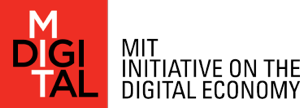Healthcare, education and law are poised to be the next major sectors hit by a digital platform tsunami.
According to tech and economic gurus speaking at the July 10 IDE Platform Strategy Summit,
these three fields have lagged many others in terms of digitization and now are ripe for new models that emphasize open platform ecosystems to deliver more efficient services.
Marshall VanAlstyne, an IDE organizer of the event, noted that any industry where information and community can collaborate and yield value can benefit from platforms. None will be exempt–even those with long-held traditions and standards, he said. (Read more about Marshall’s insights and platform strategies in this blog).
Health and law are two prime examples. Both are highly regulated industries with decentralized state authorities and disparate systems that platform enthusiasts said are holding back innovation. Each also carries ingrained cultural expectations and traditions that are inhibiting better care and services, it was argued.
Healthcare’s Failing Digital Pulse
Digital healthcare proponents pointed out several reasons that providers need to explore new business models. Giant firms are trying to expand from the top down while dozens of new entrants are coming into the market from the bottom-up to meet these needs.
Vince Kuraitis, Principal and founder of Better Health Technologies, LLC and author of an upcoming book on healthcare platforms, said that Medicare is driving the industry to seek better outcomes from healthcare services. At the same time, payment and reimbursement formulas are being revamped causing disruption among consumers and practitioners. Digital platforms can help, he said: While there are “thousands of mobile medical apps for smartphones,” they aren’t connected. (Slides from the panel can be found here.)
Several panelists addressed this need for open systems to interconnect patient data and healthcare providers. For example, Julie Yoo, Co-founder and Chief Product Officer at Kyruus, offers patients an open-platform data search engine that matches doctors with appointment times. (More on her perspective can be found here.)
Fixing a ‘Broken’ Legal Profession
Perhaps the strongest case against the status quo was made by Eddie Hartman, co-founder of the LegalZoom law platform (pictured below). In his presentation, Hartman, a member of the California bar and an entrepreneur, said that
it’s time to transform the “broken, 300-year-old legal profession” which lacks “brands, trust, guarantees and convenience.” As a result of restrictive regulation against advertising, arcane billing processes and a disequilibrium between supply and demand, Hartman believes a platform marketplace “can be a good experience for clients and lawyers in a fragmented, closed industry.”
Learning to be Digital
In the case of higher education, which doesn’t even define itself as an industry, panelists offered platform alternatives that can digitize course content, mentorships and remediation—all the mainstays of university faculty and administrators, in other words. (Slides from the education panel can be viewed here.)
In light of soaring tuitions, uncertain job markets and new learning options, the discussion left Chris Dellarocas, Chair of the Digital Learning Initiative at Boston University, wondering what the role of the traditional university will be in the digital future. Universities must re-evaluate their structure and reflect on “what is our key value.” If not, he said, in education, as in every realm, “Platforms can be a death knell for those who don’t become leaders.”
How will you accommodate this rising tide of change?
Share your thoughts and visions.

